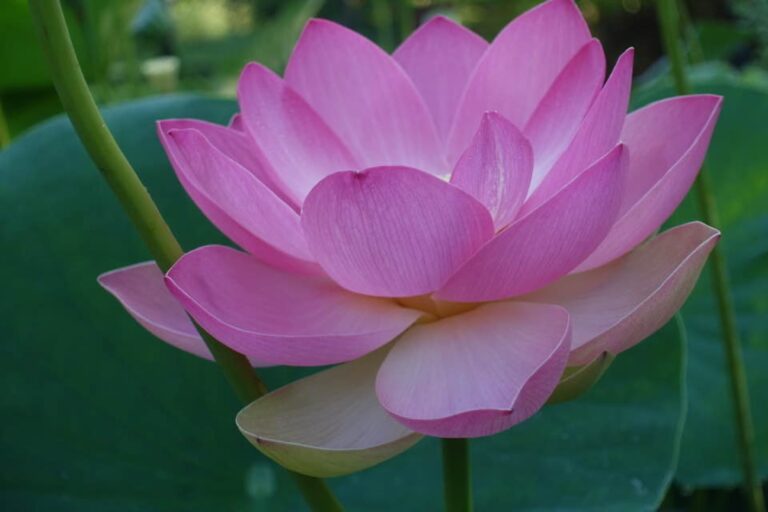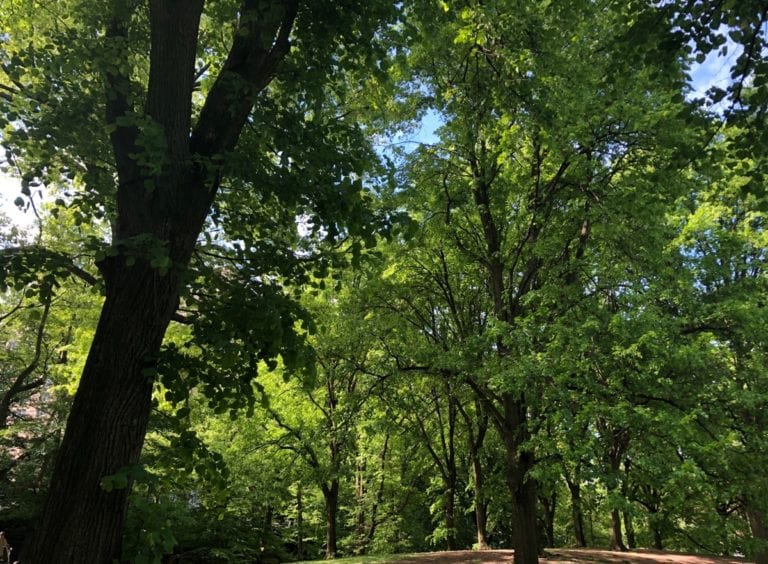Similar Posts
Week 662: Nature’s Astonishing Intelligence
Walking through Central Park in the rain one morning, I found myself pondering the astonishing fact that the planet figured out how to generate water, and then to evaporate it so it could come down as rain and nourish a wide array of life forms as they emerged into the ever-expanding family of planetary life. For the entire walk, Read More “Week 662: Nature’s Astonishing Intelligence”

879th Week: Coming Back to Center
During challenging times, it’s more important than ever to be able to move through whatever feelings might arise and eventually return to center. When we embrace the idea of our inevitable wholeness, where we make room for everything that is part of our body-mind being as human people, it helps to be able to cultivate a strong and reliable center as our internal home base. This home base becomes a place to reorient ourselves when we are activated without having to do battle with or banish what we feel.
For many of us at this time, there are feelings of grief, disbelief, and anger over issues that reflect societal inequities and injustice. In this week’s practice in conscious living, there’s no request not to feel whatever you are feeling. Instead, there’s an invitation to orient to your grounded center in addition to what you feel so you can carry with you a place to land and rest when you need to do so.
Read More “879th Week: Coming Back to Center”
786th Week: The Gift of Transmitting Love
One of the practices I’ve taken on even more actively these days is imagining that I am an open and always-available channel for the energy of universal love to flow through me as I move around in the course of my daily life activities. When I use the word “love”, I’m not referring to the personal kind but, instead, to my sense that the most potent healing energy in the universe is Love with a capital “L”.
It seems to me that this particular kind of “subtle activism” can be an addition to whatever else I, or we, may do to help heal our distressed world, our human family, and all our other earth kin. Imagining the energy of love flowing through me throughout the day doesn’t ask anything of me other than to bring my awareness to the process as often as I choose to do so. And, I feel somewhat confident in saying that choosing to be a channel for the healing quality of love probably doesn’t have a downside when we don’t personalize it…when we realize that we are, indeed, simply open channels for this universal energy to flow through us and into our world.
For years, I’ve had a practice of blessing everything around me. This particular practice became much more an ongoing part of my life when I went through seminary and was ordained as an Interfaith (now called Interspiritual) Minister back in 2003. In recent years, I’ve found that taking classes with David Spangler through his Lorian Association has helped me focus even more fully on these ways of moving through the world.
Read More “786th Week: The Gift of Transmitting Love”
899th Week: Your Unique Energy Signature and the Spaces Around You
Whenever I begin any kind of group, I invite people to take a moment to follow the next out-breath down inside and find the place that is their natural landing place, their internal center of gravity. This is the place in us where we touch into a couple of very important aspects of ourselves. One is the steadiness that lives here. It is a steadiness that can never be disturbed. Another is arriving to an awareness of the quality and tone of our inherent core presence, the unique energy signature that we radiate throughout our bodymind being and out into the world around us in every moment, without exception.
We live in a world that appears to be solid and yet is actually comprised of an infinite variety of frequencies of energy. As Einstein says, “Everything is energy and that’s all there is to it. Match the frequency of the reality you want and you cannot help but get that reality. This is not philosophy. This is physics.”
If our human senses were more attuned to these frequencies, we would be aware of ultra-violet light and color, x-rays, and so much more. We are aware of a very small range of frequencies that are present and part of our physical lives.
Read More “899th Week: Your Unique Energy Signature and the Spaces Around You“
845th Week: Cultivating the “Noticing” Brain
Without doubt, we live in challenging times locally and globally. I’ve written before about the importance of being able to return to the steadiness that is always at the core of our being as a way to manage the collective distress and suffering that can come into our awareness in any moment. It’s equally important to have access to what’s known as the “noticing” part of our brain, the aspect of our awareness that arises within our present-day observer. Janina Fisher writes about this part of the brain in her new book, “Transforming the Living Legacy of Trauma: A Workbook for Survivors and Therapists”.
The observer function is very different from the internal critic or judge. It’s that aspect of our awareness that notices, that mindfully observes. This kind of mindful awareness offers us an opportunity to choose how we want to respond to what comes our way. It can allow us to do so in a non-reactive, or at least less-reactive, way.
Below is a brief practice for cultivating the “noticing” brain, especially focused on those times when you move toward becoming overwhelmed by all that’s going on your life, in our collective human family, and with our beleaguered planet.
Read More “845th Week: Cultivating the “Noticing” Brain”